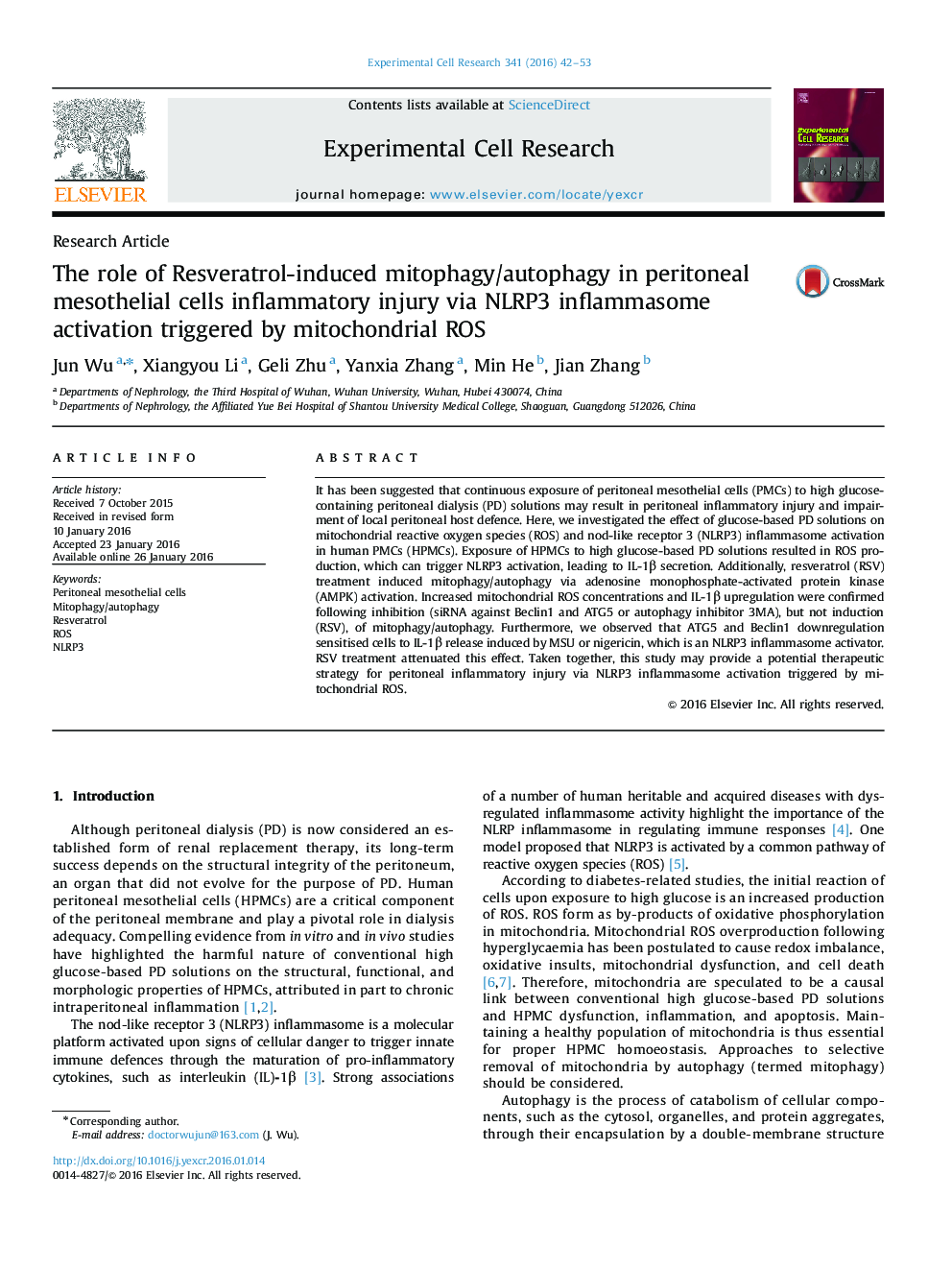| Article ID | Journal | Published Year | Pages | File Type |
|---|---|---|---|---|
| 2130037 | Experimental Cell Research | 2016 | 12 Pages |
•Exposing HPMCs to glucose-based peritoneal dialysis solutions results in Mitochondrial ROS production.•Mitochondrial ROS upregulates IL-1β expression through NLRP3 inflammasome activation.•RSV induces mitophagy/autophagy via AMPK activation in HPMCs.•Inhibition of mitophagy/autophagy results in ROS generation and NLRP3 inflammasome activation.
It has been suggested that continuous exposure of peritoneal mesothelial cells (PMCs) to high glucose-containing peritoneal dialysis (PD) solutions may result in peritoneal inflammatory injury and impairment of local peritoneal host defence. Here, we investigated the effect of glucose-based PD solutions on mitochondrial reactive oxygen species (ROS) and nod-like receptor 3 (NLRP3) inflammasome activation in human PMCs (HPMCs). Exposure of HPMCs to high glucose-based PD solutions resulted in ROS production, which can trigger NLRP3 activation, leading to IL-1β secretion. Additionally, resveratrol (RSV) treatment induced mitophagy/autophagy via adenosine monophosphate-activated protein kinase (AMPK) activation. Increased mitochondrial ROS concentrations and IL-1β upregulation were confirmed following inhibition (siRNA against Beclin1 and ATG5 or autophagy inhibitor 3MA), but not induction (RSV), of mitophagy/autophagy. Furthermore, we observed that ATG5 and Beclin1 downregulation sensitised cells to IL-1β release induced by MSU or nigericin, which is an NLRP3 inflammasome activator. RSV treatment attenuated this effect. Taken together, this study may provide a potential therapeutic strategy for peritoneal inflammatory injury via NLRP3 inflammasome activation triggered by mitochondrial ROS.
